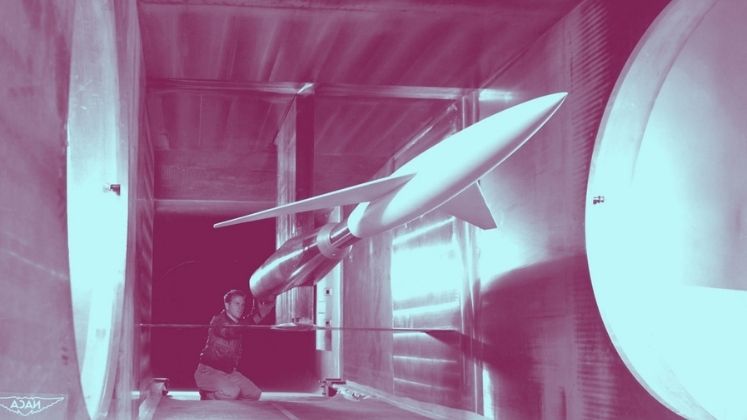The worlds of policy and academia are often distant and can be difficult to span. In this post Kathryn Oliver and Annette Boaz reflect on their experience of working in the Government Office for Science to help produce the government’s new Areas of Research Interest and the particular challenges involved in establishing and mobilising networks of researchers and policymakers to work towards shared goals.
As regular readers of the LSE Impact blog will know, we are academics with an interest in evidence use in policy and practice. Recently we have had the chance to spend time in the Government Office for Science, putting into practice some of the evidence-based lessons about how to promote effective research-policy engagement. Back in July 2020, we launched – as part of our Rebuilding a Resilient Britain research-policy engagement exercise – nine working groups of funders, researchers and government officials. Over the next four months, they met regularly to identify evidence, discuss key messages, and refine research gaps relating to 9 key themes, each of which had been identified as important to help the UK recover from covid-19 in the medium to long term: Vulnerable Communities, Supporting Services, Trust in public institutions, Crime prevention, Supporting lower-carbon local economies, Land use, Making the future of work healthier and more sustainable, Local and national growth, Trade and Aid. Some of the participants have shared their experiences of the process, including an interesting blog from a member of the local and national growth group.
Each group met multiple times and eventually produced substantial reports summarising the evidence – all free to download. Those involved committed hours of their time during one of the busiest and most stressful working years we’re ever likely to have. We worked with groups to make these reports – according to the literature – most likely to assist decision-makers: short, navigable, neat, policy-focused, evidence-led summaries. In fact, many of the key messages and evidence gaps we identified have been picked up elsewhere; for example the disproportionate impact of covid-19 on vulnerable communities; the opportunities for fairer and greener economic recovery; the need to find better ways to make use of existing data and evidence.
We’re not naive enough to think that having produced this huge body of work, in whatever format, is enough to change policy and practice. Although we knew in advance that publication is usually just the start of the knowledge mobilisation journey, we still hit speedbumps along the way. Here’s some things we learned:
It’s hard work
We probably underestimated the work and energy we’d both have to put in to get 9 working groups up and running, resulting in at least 45 online meetings. By October, we were thoroughly exhausted, as was everyone else. Doing engagement work of this kind is tiring at the best of times and online doubly so. Preparing these activities takes huge amounts of work – not just the administration associated with setting up this many meetings with papers, briefs, notes, invitations, but the interpersonal work of reaching out, making connections, and talking through expectations with people.
The emotional work of preparing people for and supporting this type of high-stakes engagement is demanding but necessary, and often undervalued.
This hidden work underpins much successful knowledge mobilisation and takes a lot of patience and skill. The emotional work of preparing people for and supporting this type of high-stakes engagement is demanding but necessary, and often undervalued. We also found that there was sometimes an assumption that because we were playing this organisational, supportive role, we must not be experts in our own right, but instead available to perform a wide range of administrative tasks on behalf of participants. This relates to a wider issue of the important work professional services staff in supporting academic engagement and research impact.
Identifying potential participants is skilled and time consuming work: Populating our working groups meant deciding who should be part of the conversations. This felt like a risky process, given that it affected what evidence would be discussed. We began this work with the principle of trying to increase the diversity of voices, and asked our stakeholders (UPEN, the What Works Network, UKRI research councils and the National Academies) to propose participants. We had to do a lot of thinking about who had been proposed, how to filter them down, and what mix of people / disciplines / career stages/ geography/ backgrounds / approaches might be most useful. People’s ability to engage with the work varied according to and dependent on their prior experience, institutional support and capacity. One of our tasks was to set an inclusive tone through our process and way of working. Most groundwork paid off, but not all. For example, we grouped ARIs on the themes of Trade and Aid, on the mistaken assumption that these kind of overseas connections were conceptually and practically related. This framing tended to distract from useful discussion within the – as it turned out – too-diverse a group of participants. Mistakes like this stay with you throughout the process!
Mobilisation takes people, not papers
We could probably have done 9 rapid literature reviews in the time ourselves, which may have fitted the bill in terms of providing “missing evidence“. The added value of doing it in the way we did is that you create connections between people, bodies of knowledge and experience. These then need fostering and looking after. Much of the onward trajectory of the groups’ work has been through individuals and connections forged in these groups or coming out of them. For example, people who were physically involved are now in a position to use the outputs in their own work and research applications. We know of at least two examples, but of course, this – like all impact – it is difficult to track. Publication is in many ways the beginning of the journey, or at least merely an early milestone along the road towards use. And it’s a journey which takes so much time and effort, that it’s easy to fall into the trap of thinking the job is done once the evidence has been neatly described. Instead, concerted and continual effort is required to help people get the most out of it. This might mean helping funders navigate the detail in a 200 page report, or holding regular discussions with analysts to shape forthcoming R&D bids.
You need people who have the right skills and time and in the right time / place to use opportunities. These people are currently in short supply, and – despite increasing high level recognition that these kinds of connectors are important – there are few opportunities to build careers (academic or otherwise)
Good will needs fostering
Good will is essential in helping to feed findings into policy dialogues. Sometimes you have to work hard on both sides of a dialogue to know why something is relevant. Documents on their own can’t do that work – all people involved have to be up for and prepared for the conversation. To get to this point requires generosity, good will, empathy, and interest. In other words, it’s not enough to know that a window of opportunity is there, or even to create one. You also have to know how to lean out of the window – and that involves a rare combination of personal, logistic, practical, emotional and cognitive skills – not to mention bravery. You need people who have the right skills and time and in the right time / place to use opportunities. These people are currently in short supply, and – despite increasing high level recognition that these kinds of connectors are important – there are few opportunities to build careers (academic or otherwise).
From our experience, there seems to be scope for more of this knowledge brokering work to be embedded into our systems and institutions to support research policy engagement. However, extrapolating from just one experience of working at the boundary between research and policy is perhaps not the kind evidence informed thinking we believe in. We need more and better evidence on how to support research use, this is something we have tried to foster on our own blog (Transforming Evidence) and it is also part of a growing conversation with organisations, such as UPEN, bringing many of the actors in this area together, we encourage anyone interested to join.
Note: This article gives the views of the authors, and not the position of the Impact of Social Science blog, nor of the London School of Economics. Please review our Comments Policy if you have any concerns on posting a comment below.
Image Credit: Clayton Cardinelli via Unsplash.









Great post thanks. Will use on our IUSSP (Gates funded) research-policy link project on urban family planning in Africa.